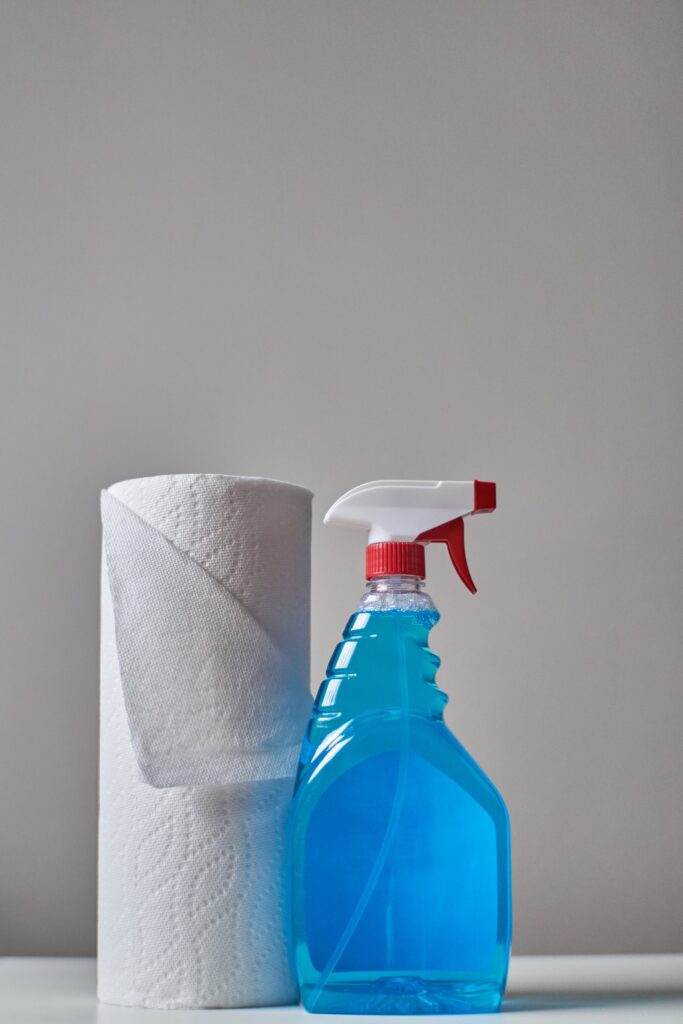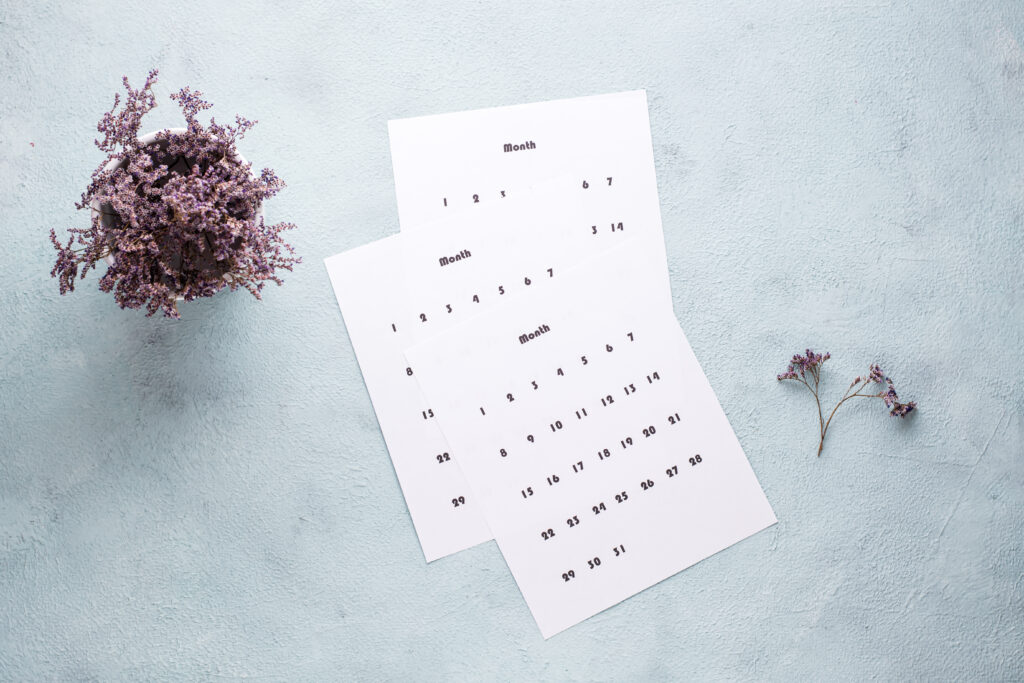Being someone with a very busy, full-time schedule can make it very difficult to take part in the everyday mundane tasks. And by this, I mean tackling the dreaded housework.
After being out of the house from early morning to
For those that have families thrown into the mix too, you probably have a very crazy life, and cleaning is certainly the least of your worries.

So, to avoid the stresses of coming back to a house that is not inviting, but dull and cluttered, I am going to tell you the best ways to keep on top of housework throughout the week. This way not only will your house be as fresh as a daisy, but you will have the weekend free to do whatever you wish- bonus.
Why Is Cleaning The House Important?
Regular house cleaning is crucial for various reasons. It ensures a healthier living environment by removing dust and allergens, reducing the risk of infections, and preventing pest infestations. A clean home enhances comfort, aesthetics, and mental well-being, positively impacting occupants’ overall quality of life. Additionally, it contributes to the maintenance of property value, safety, and productivity. A clutter-free and organised space not only fosters a positive impression on guests but also reflects the occupants’ attention to detail and responsibility.
What are Natural Household Cleaning Methods?
There are a number of natural cleaning methods as eco-friendly alternatives to conventional products. For instance, white vinegar disinfects and cuts grease, baking soda tackles scrubbing and odours, while lemon juice adds a fresh scent and antibacterial punch. There is also plant-based castile soap for all-purpose cleaning, and then you can witness the magic of olive oil for polishing furniture. For natural alternatives to fragrances, you can use the antibacterial benefits of tea tree and lavender essential oils. Cornstarch is perfect for window and carpet cleaning, salt serves as a gentle abrasive, and hydrogen peroxide is a versatile disinfectant and laundry whitener. For natural protection on wooden surfaces, turn to beeswax.
How Often Should Housework Be Done?
Household tasks are based on home size, occupants, and lifestyle.
As a general guideline, you can follow our household cleaning frequency schedule below
Clean Frequency Schedule
Daily:
- Wash dishes after meals to prevent buildup.
- Quick sweep or vacuum based on traffic.
Weekly:
- Mop hard floors.
- Clean bathroom sinks, countertops, mirrors, and toilets.
- Dust surfaces, furniture, and electronics.
- Change bedding.
Bi-weekly or Monthly:
- Thoroughly vacuum carpets/rugs.
- Clean kitchen appliances (microwave, oven, refrigerator).
- Deep clean bathrooms, including tiles and grout.
- Wash windows and window sills.
- Dust and wipe less frequent areas.
Seasonal/As Needed:
- Deep cleaning tasks (curtains, upholstery).
- Outdoor maintenance based on the season.
Annually:
- Schedule appliance maintenance (HVAC).
- Professional carpet cleaning.
- Schedule pest control as needed.
Adapt these guidelines to your circumstances, considering task importance and personal preferences. Regular maintenance prevents dirt buildup, making cleaning more manageable.
Effective Strategies for Keeping on Top of Housework
Complete One Task A-day
Leaving the house for the entire week untouched will only leave a mess by the end of it. Leading to the entire weekend being taken from cleaning each and every room in the house, top to bottom, and before you know it, it’s 7 pm on Sunday night, work starts again tomorrow.
Creating a Cleaning Schedule

A cleaning plan is an essential tool for effectively managing housekeeping and maintaining a tidy and organised living space. Having a regular cleaning schedule may help you stay on top of duties and lessen the stress that comes with keeping your house clean, whether or not you lead a hectic lifestyle. Here are some reasons why having a cleaning plan is crucial, as well as some suggestions for creating a productive one for busy people:
Assess Your Needs: Determine which areas of your home require regular cleaning and how often. Prioritise tasks based on importance and frequency.
Set Realistic Goals: Be realistic about what you can accomplish. Don’t overcommit to too many tasks in one day or week, especially if you have a busy schedule.
Create a Weekly Plan: Divide tasks into daily, weekly, and monthly categories. Daily tasks might include dishes and quick tidying, while weekly tasks could involve vacuuming or dusting, and monthly tasks could be deep cleaning or organising specific areas.
Time Management: Allocate specific time slots for cleaning in your daily or weekly routine. For busy individuals, it might be more practical to dedicate shorter, focused bursts of cleaning time rather than long sessions.
Delegate and Share: If you live with others, involve them in the cleaning schedule. Assign tasks or have a shared responsibility system to distribute the workload.
Use Technology: Set reminders on your phone or calendar app to help you stay on track with your cleaning schedule.
Be Flexible: Life can be unpredictable, so it’s essential to be flexible with your cleaning schedule. If you miss a task, try to catch up on it as soon as possible.
Reward Yourself: After completing tasks on your cleaning schedule, reward yourself with something you enjoy. This can provide motivation and make cleaning feel less like a chore.
Evaluate and Adjust: Periodically review your cleaning schedule to see if it’s working for you. Adjust tasks or frequencies as needed to better fit your lifestyle.
Seek Help if Needed: If you find that you still struggle to keep up with cleaning, consider hiring professional help or using cleaning services periodically.
Importance of a Cleaning Schedule:
Consistency: A cleaning schedule ensures that tasks are performed regularly, preventing dirt and clutter from piling up. Consistency is key to maintaining a clean home.
Time Management: It helps you allocate specific time slots for cleaning tasks, making it easier to balance housework with other responsibilities.
Reduced Stress: Knowing what needs to be done and when can reduce the stress of dealing with a messy or disorganized home.
Health Benefits: A clean home promotes better physical and mental health by reducing allergens, germs, and stress triggers associated with clutter.
Efficiency: With a schedule in place, you can optimize your cleaning routine, potentially saving time and energy.
Don’t Leave Things For ‘Later On’
It may be a habit after getting ready in the morning, to leave all of your cluttered pieces scattered across the home to be tidied up later on.
From a pair of hair straighteners to the cereal bowls and bottles of milk, put things away as you go, to save time when you get back after work. Not to mention, leaving items scattered about the place will only make the home look far worse than it potentially is, only leading to stress being caused, and a feeling of discomfort given until it is clean.
So, likewise with making lunch the night before to have an extra 5 minutes in bed, think ahead to the end of the day, and tidy your used items away as you go, to save any problems later that evening.
Moral of the story – Clean up after yourself!
Always Stock Up On Supplies
The easiest way to be able to clean more often is to have access to any needed cleaning supply at all times. If you get a spurt of motivation one night and want to clean both the living room, kitchen and bathroom, only to find you do not have any floor or tabletop cleaner, the chances of you going to the shop are slim, leading to these tasks just being thrown to the side instead.
So, if you do a weekly shop, make sure that a couple of supplies are bought with each trip, and inventory checks are made regularly to ensure everything is at least more than half-full. This way, there can be no excuse as to why the house is not clean and smelling amazing all the time, as you will have the tools at hand to do so. For example, keep a stash of Cif Wipes in each room cabinet, to give the surfaces a quick wipe over, and simply throw the remnants into the bin. It’s as simple as that.
Throw The Unneeded Items
The collection of ornaments and plant pots don’t add drama to your living room, oh no. Instead, they are dust collectors! Don’t forget the more items stashed around the home, the more you have to clean around them, and no one wants that.
All these types of items do is add to your cleaning time. Each one not only needs to be moved to clean the surface below, but they need to be wiped over and spruced up themselves. So, keep the decor in the home slightly minimalistic.
By having face surfaces that are
Don’t Take On All The Tasks, Enlist Help
For those who live alone, this may not be an option for you. But, for those who have a significant other and a set on obedient children, get them in order and allocate a simple task to each.
This may be far easier said than done, with a whirlwind of sighs and moans likely coming your way very soon. But, why not try anyway. Likewise, with the idea suggested earlier of scheduling a room per day, why not make one for the children too.
Each day should contain a task such as filling the dishwasher, tidying the living room, and each making their beds every morning. They aren’t the most challenging tasks, but they will shave off the time it takes when cleaning the rest of the home. And this way, you will all be able to snuggle on the sofa together at the end of each day, to a film and collection on snacks- but make sure to put the wrappers in the bin!
Add Some Fun
Cleaning doesn’t need to be all that boring, even though it’s a task absolutely no one wants to take on. So, why not throw a little fun or competition into it.
The smallest of challenges from seeing how many tasks you and the children can complete before the song ends, or each having 15 minutes and whoever’s room is the cleanest get a bar of chocolate at the end!
This way, cleaning may not seem all that bad. Just make sure the tasks are actually getting done though, as the intense excitement can take over, and the jobs may get thrown to the side for the laughter instead.
Clean In Any Spare Time
Waiting for the kids to get their shoes on? Why not quickly tidy up the living room and clean up the sofa? Husband taking a little too long in the bathroom? Why not go round and clean all the window ledges?
By finding pockets of time to micro-clean between waiting for everyone to be ready, or between activities, will make the home quickly become cleaner and will make the real tasks of vacuuming and polishing a little easier.
And this way, no time is wasted, only taken advantage of, leaving more free time to do any personal errands or enjoy a nice meal over the weekend.
Summary
So, for those who have jobs that take over, or more tasks to take on during the day then they can manage, the weekly home clean will soon take a toll and be thrown to the side for the more important challenges that need to be tackled.
From picking the kids up from school to having endless phone calls at the office, there just may not be enough time in the day to be able to have a spotless home.
This is why these tips are the best you can follow. From micro-cleaning to decluttering and delegating simple tasks out to the children, each will aid in creating a welcoming and pristine home by the end of the week, leaving the weekend to family, personal time, or even date night!
Not to mention coming home from a long and stressful day at work to a calm, clean sanctuary will make you feel fully relaxed and rejuvenated, with time for a bubble bath or facial, preparing for the next day ahead in the best way possible.
FAQ’S
what household products can you use to clean leather?
To clean leather, you can use mild soap mixed with water or a combination of equal parts white vinegar and water, wiping gently with a damp cloth. For conditioning, apply a small amount of coconut oil, rubbing it in circular motions and buffing with a clean cloth. Another option is mixing olive oil and lemon juice, applying the mixture and buffing for added shine. Unscented, alcohol-free baby wipes work well for light cleaning. In case of stains, use a cloth dampened with rubbing alcohol, followed by a clean, damp cloth. Always perform a patch test and avoid harsh chemicals or excessive water to maintain the leather’s integrity. Regular dusting helps prevent dirt accumulation.
How do I clean leather car seats with household products?
To clean leather car seats with household products, start by vacuuming to remove loose dirt. Mix mild soap with water, wipe the seats gently, and remove soap residue with a damp cloth. For tougher stains, use a solution of equal parts white vinegar and water. Condition the seats with coconut oil, applying in circular motions and buffing with a clean cloth. Ensure the seats are thoroughly dry before use. Always test any solution on a small area first and avoid excessive water or harsh chemicals to preserve the leather’s integrity. Regular cleaning and conditioning help maintain the appearance and durability of leather car seats.
What natural cleaning methods can I use to clean my oven?
Baking Soda and Water Paste:
Mix a 1/2 cup of baking soda with water to form a paste. Spread the paste over the interior surfaces of the oven, avoiding heating elements. Let it sit overnight or for at least 12 hours. Wipe away the dried paste using a damp cloth or sponge. For stubborn spots, use a mixture of equal parts water and vinegar to scrub away residue.
Vinegar and Lemon Juice:
Mix equal parts water and white vinegar in a spray bottle. Spray the solution onto oven surfaces. Cut a lemon in half and rub the cut side over the oven surfaces. Let it sit for about 10-15 minutes. Wipe down the oven with a damp cloth or sponge to remove grime and residue.
Remember to remove oven racks before cleaning and to ventilate the area well. These natural methods are effective and safer alternatives to commercial oven cleaners, avoiding the use of harsh chemicals in your kitchen.
